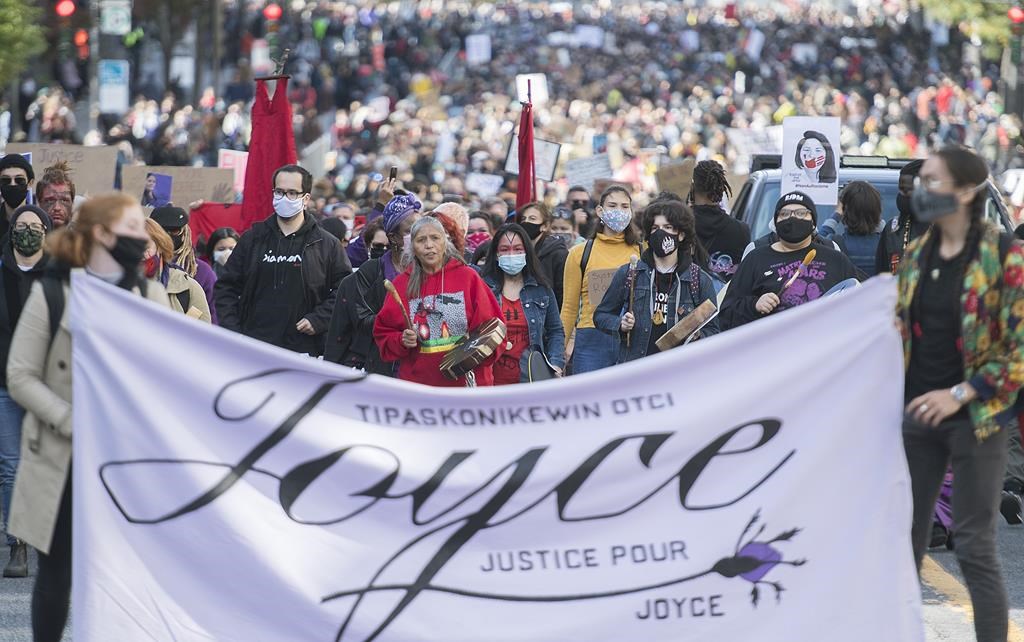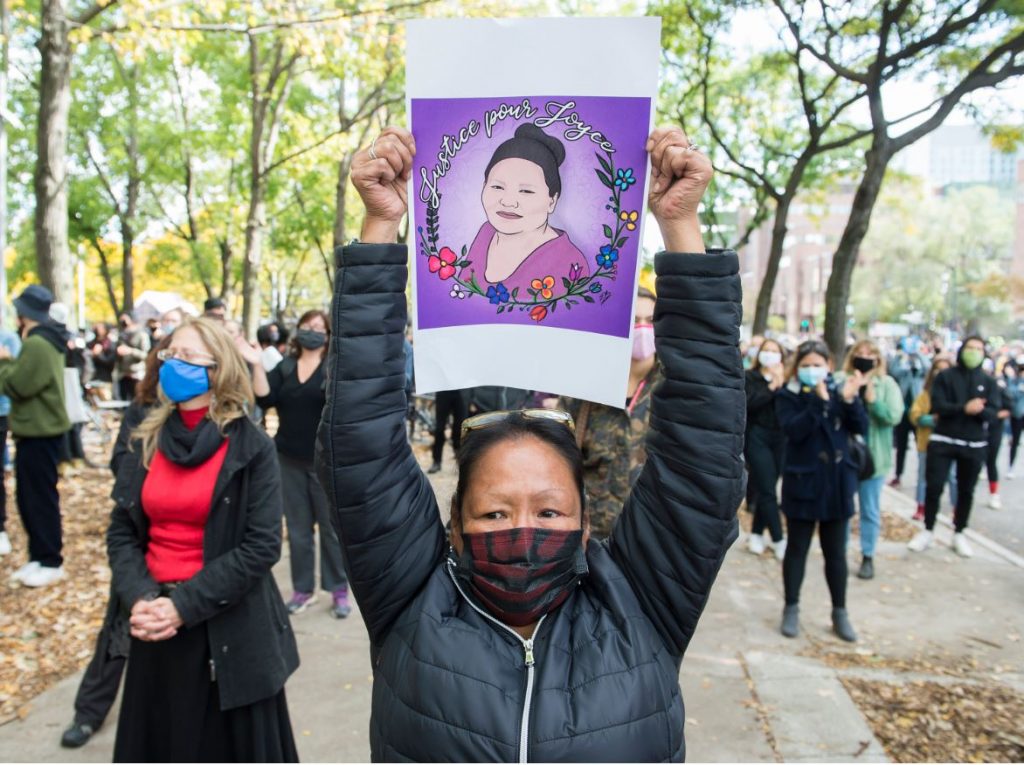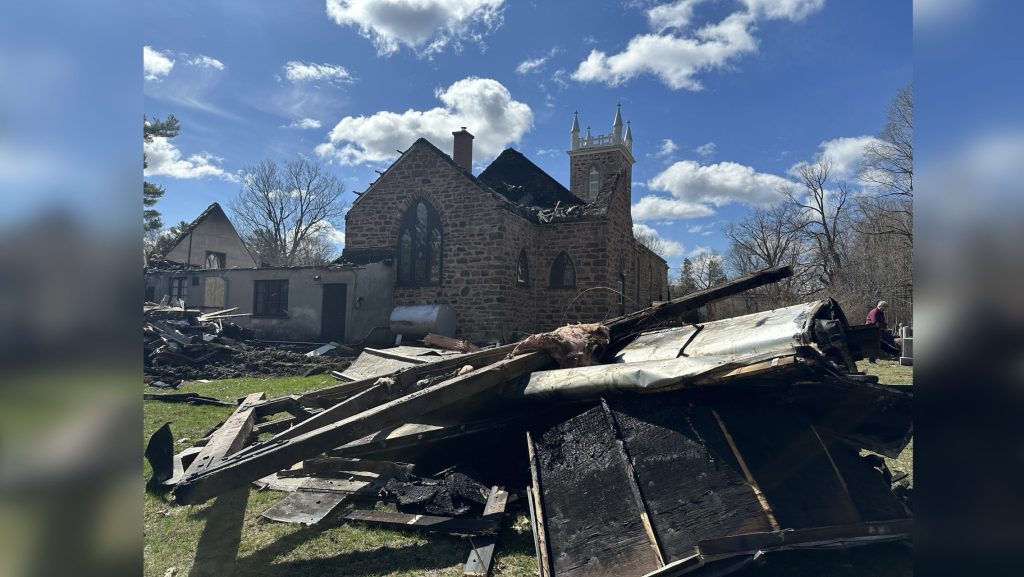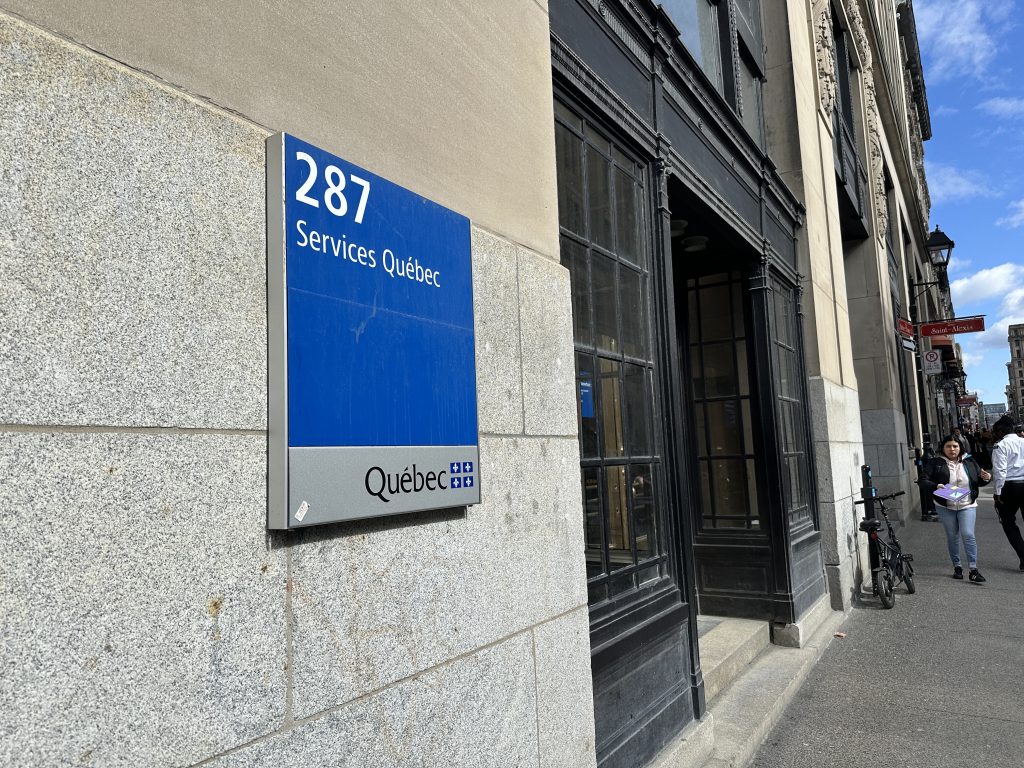‘I wish it was getting easier’: What has changed in the year since Joyce Echaquan’s death?
Posted September 28, 2021 6:00 am.
Last Updated September 28, 2021 10:09 am.
MONTREAL (CityNews) ─ Indigenous leaders say not much has changed in Quebec in the year since Joyce Echaquan, a 37-year-old Atikamekw mother of seven, died in a hospital northeast of Montreal.
Echaquan recorded her last painful moments while lying in a hospital bed in Joliette, Que., calling for help as nurses mocked and insulted her. She died on Sept. 28, 2020.
The incident resulted in a wave of shock and grief across Quebec and Canada.
A year later, those Indigenous leaders and those who work within the community continue to grapple with Echaquan’s death as the country prepares to recognize the first National Day for Truth and Reconciliation on Thursday.
“The kind of behaviour that the nurses treated Joyce with, I’ve heard this kind of behaviour in different ways for 20 years, different microaggressions against Indigenous people,” said Indigenous activist Nakuset. “Unfortunately, it is more normalized than we’d like it to be.
“You almost become triggered or traumatized that every time someone goes to the hospital, you’re like, ‘how did it go? Was it OK?’
“Indigenous people have gone through an enormous amount of oppression and I wish it was getting easier, but I don’t think it’s getting easier.”
This week, CityNews is taking a closer look at Indigenous issues leading up to the National Day for Truth and Reconciliation, which is also known as Orange Shirt Day.
At the hospital in Joliette, Echaquan died of excess fluid in her lungs likely caused by heart failure shortly after filming the video. Doctors had incorrectly diagnosed her as suffering from opioid withdrawal.
At various points in the seven-minute video, a nurse can be heard saying Echaquan was stupid, good for sex, a drain on the health system and better off dead.
The nurse was fired for insulting Echaquan and later apologized to her family during a coroner’s inquest, admitting her derogatory comments were cruel.



Sen. Michèle Audette, an Indigenous women’s rights advocate, says real change needs to happen in society so that Echaquan’s death was not in vain.
“It did awake many of us across Canada,” said Audette. “We repeated it for a long, long time that it was happening, but Joyce was able in a sad, sad way to bring that truth via her cellphone. And today, when I say we feel responsible, things changed a bit in Quebec but it should be more radical.
“I still believe that right now we are reacting after a situation or a tragedy when we’ve been saying for too long, ‘let’s be proactive.’
“If we want to honour the spirit of Joyce and the thousands of men and women that left the world like this, we are part of the change. We have that power.”
READ MORE:
- Echaquan’s care at Quebec hospital should have been taken more seriously: head nurse
- Fired Quebec nurse tells Echaquan inquiry she’s sorry for comments caught on film
- First Nations chief welcomes Quebec nurses’ admission about racism in health system
The inquest into Echaquan’s death ended June 2. As Quebec awaits coroner Gehane Kamel’s report, many are hoping to see strong recommendations that would lead to action.
Meanwhile Quebec maintains it is committed to fulfilling the recommendations of the Viens commission report, which was tabled almost two years ago. The province says it has fulfilled 68 of the 142 recommendations to address what the report calls undeniable systemic discrimination towards Indigenous people.
At the same time, Indigenous leaders and Canadians across the country keep putting pressure on the federal government to implement the Truth and Reconciliation Commission’s 94 calls to action.
One of the calls to action was the creation of a national holiday, which Justin Trudeau’s Liberals instated this year. The day is a statutory holiday for all federal employees and federally regulated workplaces.
WATCH: The full reading of the Truth and Reconciliation Report in December 2015 (CPAC)
For many, that’s just a start.
“We want things to change,” said Atikamekw Nation Grand Chief Constant Awashish. “We want people to be more educated about First Nations, to be more aware about realities about First Nations. We want to destroy all those stereotypes and bad thoughts about First Nations.
“We don’t want it to be in a confrontation way, we just want to be listened to. And we just want to work with everybody for a better change, a better future for everyone.”
─With files from The Canadian Press.



